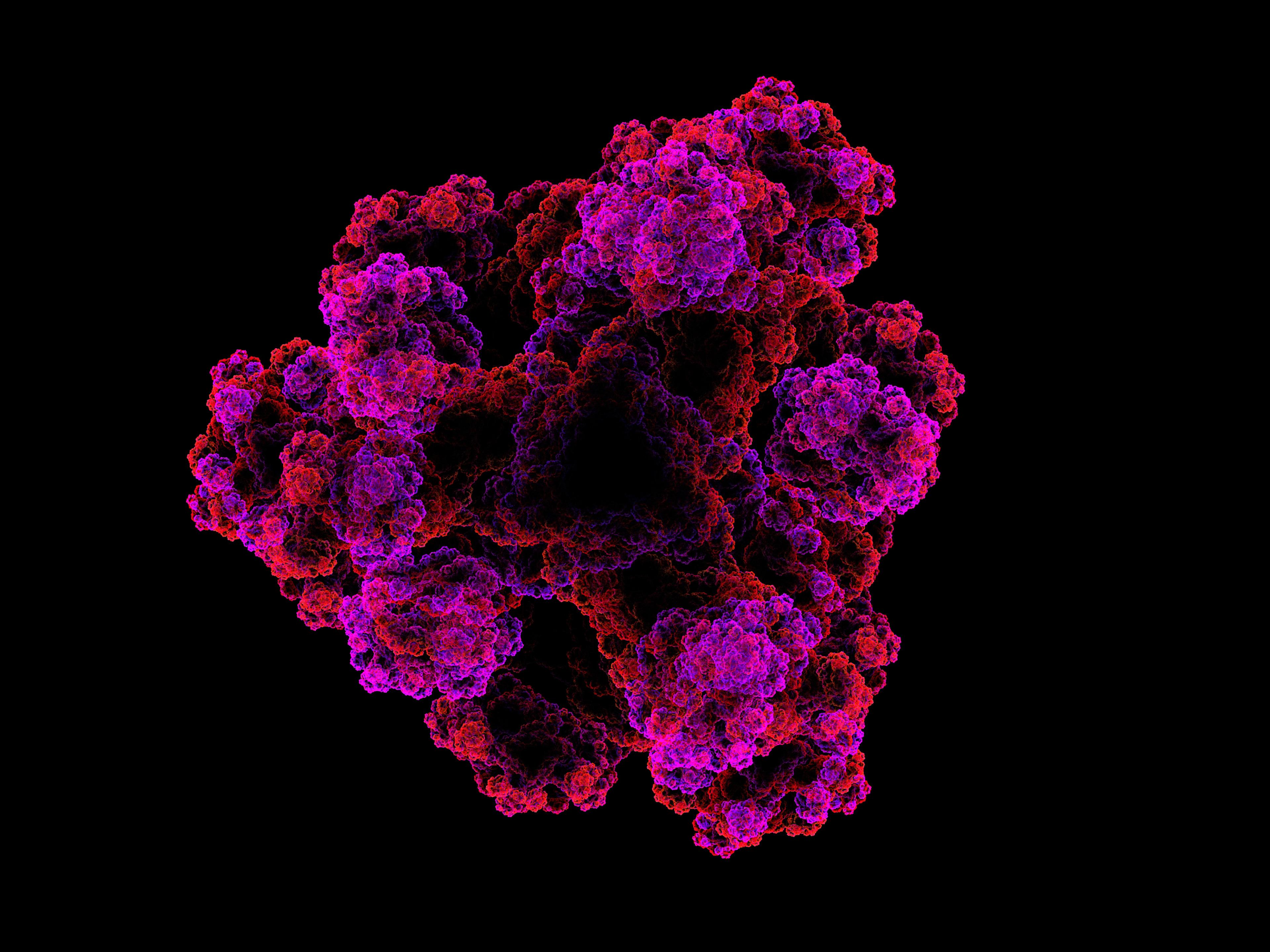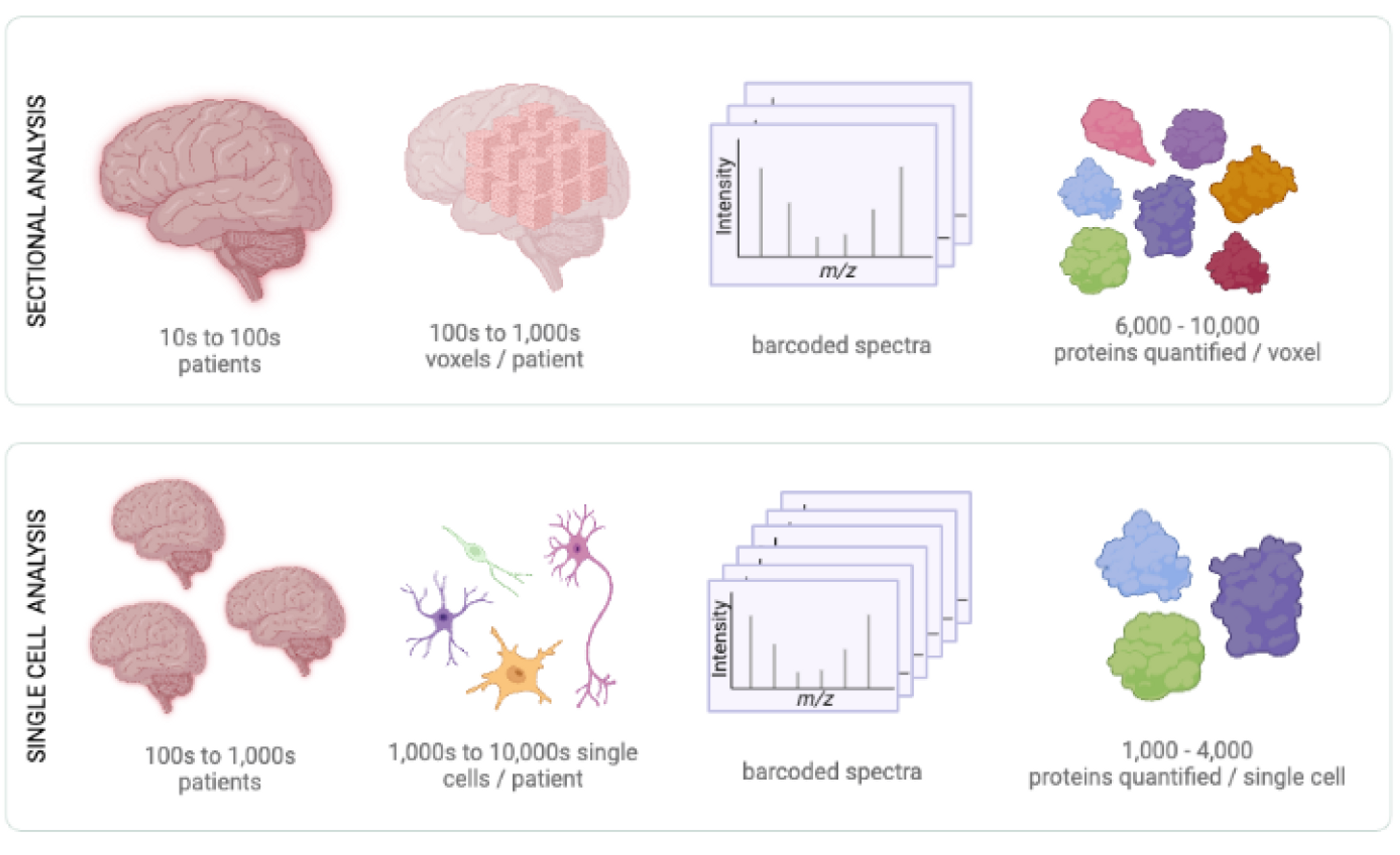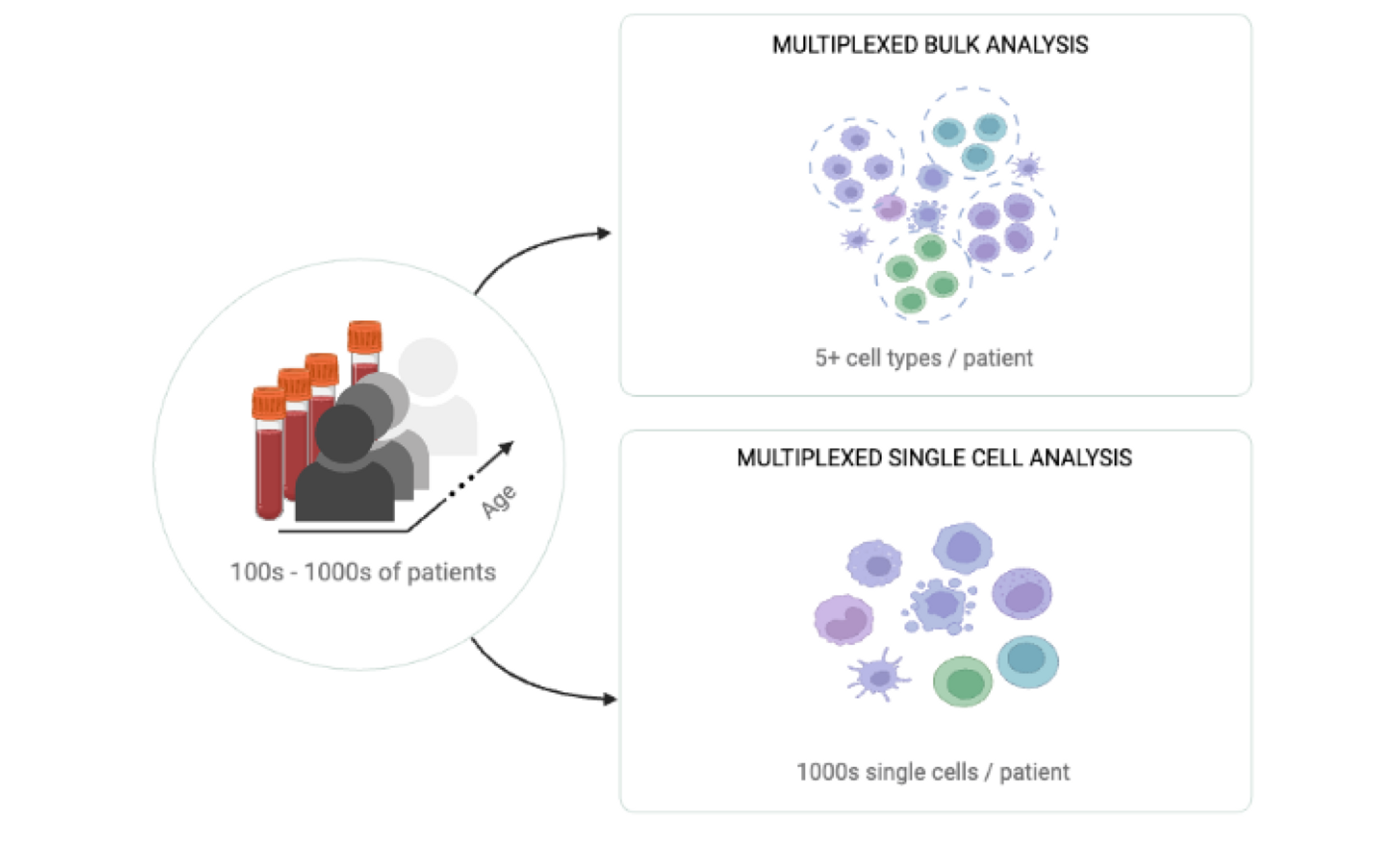
We aim to increase the throughput of mass spectrometry proteomics 100-1000x
A multiplicative increase in throughput
We have already demonstrated a proof-of-principle through the development of plexDIA. That endeavor increased the sensitivity of low-input samples using commercially available reagents. We now aim to scale the throughput by 100-1000 fold by synergistically optimizing mass spectrometry methods, creation of novel barcodes, and implementing deep learning analysis.
This multiplicative increase in throughput arises from the simultaneous parallelization of both samples (single cells per unit time) and the depth of proteome coverage (peptides quantified per sample). This inspires the name of this FRO, Parallel Squared.


Alzheimer’s Disease
The alarming prevalence of Alzheimer’s Disease (AD) and its associated human suffering and economic cost has motivated intense research. Yet, the causal mechanisms of AD remain unclear and controversial.
We propose to access protein information from AD brains on two different scales:
- small brain pieces, or voxels. Understanding how the disease affects different parts of the brain among different patients is required to investigate the spatial progression of AD in tandem with proteome profiling.
- single cells. The exquisite environment of the brain holds many diverse cell types that may exhibit different behaviors, and may furthermore be differentially impacted by disease.
To learn more about Alzheimer's disease research at PTI, please visit our Alzheimer's disease page.

Aging of Immune Cells
As we age, the ability of our immune systems declines, increasing our susceptibility to disease. The complex process of aging likely involves many factors, and so signatures of many molecules are likely needed to explain the underlying physiological mechanisms.
We propose to profile human immune cells from blood samples collected from patients representing all sexes, diverse ethnicities, and a large range of age groups ranging from 18 to 80. We aim to accomplish this in two ways:
- enrichment of abundant cell types. Bulk analyses would allow for a relatively deep coverage of not just the proteome but also post-translational modifications.
- single cells. For each patient as processed above, we would isolate single cells from each individual’s blood sample. In this way, we can better map each individual’s single cells.